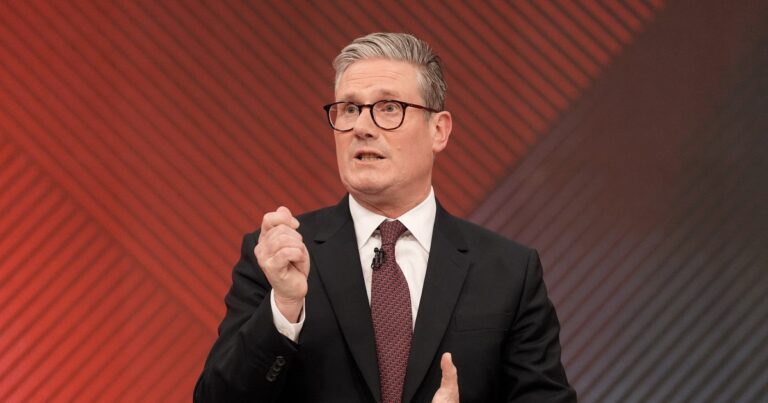The Labour leader ruled out raising income taxes such as National Insurance or VAT.
In his pre-election appeal to voters, Britain’s opposition leader Keir Starmer promised to make wealth creation a top priority for his government.
Speaking ahead of the publication of Labour’s election manifesto on Thursday, Starmer said he would prioritise economic growth and would not raise taxes.
“We will not increase taxes on workers, which means no increases in income tax, national insurance or VAT. [value-added tax]”Starmer made the remarks during the leadership debate hosted by Sky News on Wednesday.”
“Tomorrow’s manifesto will be a manifesto, a plan for wealth creation,” Starmer added. “You don’t often hear that coming from a Labour leader, but to me that’s the most important thing.”
Starmer, a former human rights lawyer turned prosecutor, is widely expected to win next month’s general election after 14 years in Conservative power.
Opinion polls have shown for months that the centre-left Labour Party has a lead of around 20 points over the Conservatives.
Still, Starmer, 61, has sought to assure voters that Labour will govern on a pro-business, pro-growth platform after Jeremy Corbyn, Labour’s most left-wing leader in decades, suffered its worst election result since 1935.
Labour has promised not to raise personal income tax and has also ruled out raising corporation tax and said its plans do not call for an increase in capital gains tax, but has not committed to keeping tax rates constant.
“I want to do things differently, I want to grow the economy and I accept that previous Labour leaders have always tried to reform tax and increase spending,” Starmer said.
The UK has been one of the worst performing major economies in recent years.
The country fell into recession in the final three months of 2023, with gross domestic product (GDP) shrinking 0.3% following a 0.1% contraction in the previous quarter.
The Organisation for Economic Cooperation and Development (OECD) predicts that Britain’s economy will grow by 0.4% this year, the slowest of any G7 economy except Germany.

